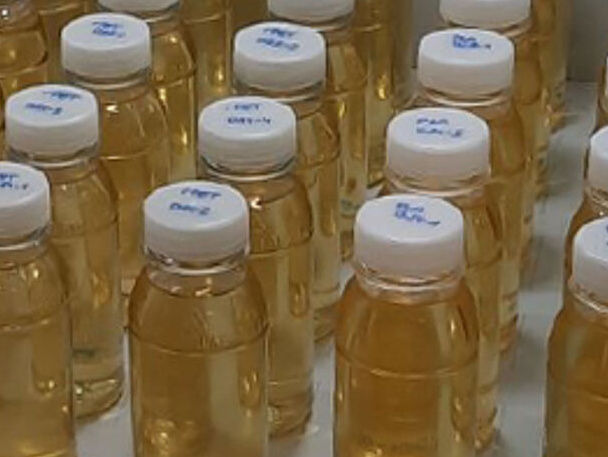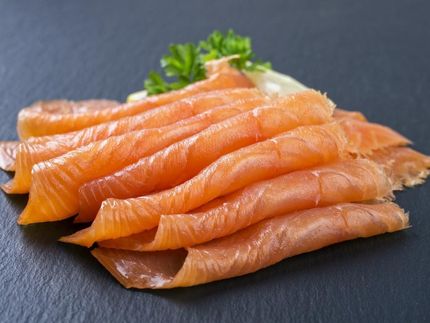Bioplastic bottles also keep cooking oil fresh for a long time
No transfer of compounds from the bottle material into the oil detected
bottles made of bioplastic protect cooking oil from oxidative spoilage (rancidity) to a similar extent as PET bottles. In addition, even less taste- and odor-impairing substances were formed. This is the result of a recent study published in the journal "Food Packaging and Shelf Life" by researchers led by Marc Pignitter of the University of Vienna's Department of Chemistry.

Martina Holler
To keep healthy cooking oils with a high content of unsaturated fatty acids fresh for a long time, the bottle material is crucial. Due to their material properties and low cost, PET bottles are often the first choice for this purpose. However, PET (polyethylene terephthalate) is very difficult to biodegrade and remains in nature for up to 2000 years. With a global production of almost 400 million tons of plastic (2021), only one-third of plastic waste is recycled in Austria, for example, and a quarter of plastic waste also ends up in landfills across the EU. In 2022, the EU Commission therefore called for new EU-wide regulations for a transition to biobased, biodegradable and compostable plastics - a group of substances that the research team around food analyst Marc Pignitter at the Institute of Physiological Chemistry at the University of Vienna is working on intensively.
Renewable & Sustainable
One promising candidate for bioplastic bottles is polylactic acid (PLA) - a thermoplastic biopolymer derived from renewable raw materials that is also industrially compostable. It is obtained by fermenting carbohydrates in corn starch or sugar cane and is already used successfully in the food industry, for example to fill smoothies. The research team now investigated whether bioplastic bottles made from PLA could also be used to store edible oils, which would be a decisive advantage in terms of sustainability & environmental compatibility given that around 200 million tons of edible oil are produced worldwide.
In detail, the effects of different conventional plastic packaging materials as well as of the bioplastic PLA on the oxidation stability and shelf life of sunflower oil were compared. The focus was on the packaging-induced development of oxidation products in the oil, which are responsible for the rancidity and bitter taste. In addition, the compounds that transferred from the bottle materials into the oils were analyzed.
Beneficial & Sustainable
The results of the storage study showed that bioplastic bottles made from PLA actually protected the sunflower oil from rancidity better than conventional PET in some cases. In addition, unlike PET bottles, PLA bottles were not found to transfer "unintentionally introduced substances" (NIAS) into the oil - so all in all, two more advantages in addition to the sustainability of the material. Although PLA is currently still well above (recycled) PET in terms of cost, the push towards bioplastics and the associated scalability will have a price-reducing effect and bring PLA into focus as a real alternative. Since PLA can already be partially recycled, it would also have to be taken into account in waste management.
Note: This article has been translated using a computer system without human intervention. LUMITOS offers these automatic translations to present a wider range of current news. Since this article has been translated with automatic translation, it is possible that it contains errors in vocabulary, syntax or grammar. The original article in German can be found here.
Original publication
Other news from the department science

Get the food & beverage industry in your inbox
By submitting this form you agree that LUMITOS AG will send you the newsletter(s) selected above by email. Your data will not be passed on to third parties. Your data will be stored and processed in accordance with our data protection regulations. LUMITOS may contact you by email for the purpose of advertising or market and opinion surveys. You can revoke your consent at any time without giving reasons to LUMITOS AG, Ernst-Augustin-Str. 2, 12489 Berlin, Germany or by e-mail at revoke@lumitos.com with effect for the future. In addition, each email contains a link to unsubscribe from the corresponding newsletter.



























































